Annette Maughan was hoping for a miracle when her package of Real Scientific Hemp Oil finally arrived in the mail.
It was May 2014, and it had been almost a year since she’d first heard about cannabis as a potential treatment for epilepsy, from the mother of another boy in her son’s class at a special-needs school just south of Salt Lake City, Utah. Maughan’s 12-year-old son, Glenn, whom everyone calls Bug, is blue-eyed, strawberry blonde, and autistic. During the day, Bug was silent, unable to talk. At night, when he was asleep, his body and his voice would betray him.
“It always starts the same way: a scream, guttural and unmistakable,” Maughan said. “He locks up, every limb on his little body. His arms and legs start convulsing so hard, and his eyes roll back.”
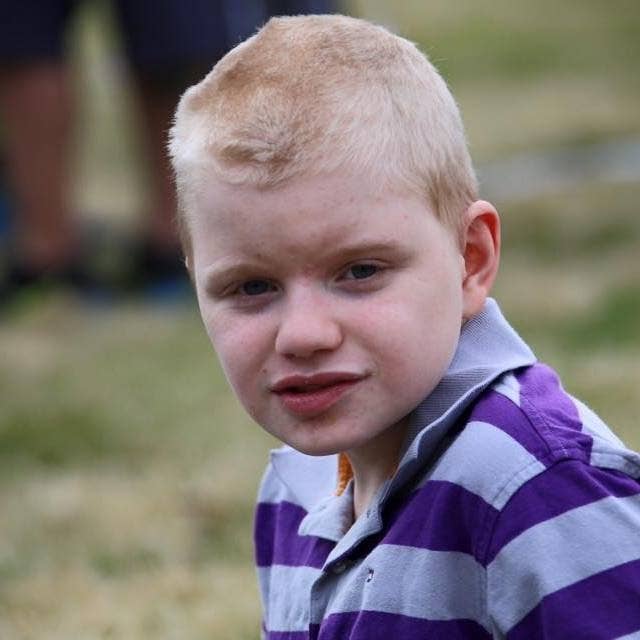
Even on a cocktail of pharmaceuticals, Bug was averaging six seizures a night, and occasionally some during the day. Squeezing a half-inch of the worm-like Real Scientific Hemp Oil onto a spoonful of coconut oil to make it go down easier, Maughan wanted badly for this $550 cannabis paste to change her son’s life and justify the months she had spent lobbying for permission to give it to him.
In the 24 hours after he took his first dose of Real Scientific Hemp Oil, Bug had 14 seizures. The next day, he had almost 30. On the morning of the third day, he bounded down the stairs to his parents’ bedroom, and just as he opened the door, his smile turned into a scream. Maughan jumped out of bed, and Bug’s body fell toward the bathroom, his shoulder hitting the sink and his head landing on the brown bath mat.
“I was holding him, crying, when I realized it might not ever get any better for him,” she said. “I might be forever spending my days cuddling him while he’s turning blue, wondering how long it will take before I can check him for injuries. I told my husband, 'Cannabis is never going to work for him.'”
Her husband, who is also named Glenn, did his best to stay positive. “You don’t know that,” he said. “This is just one product.”
Now that 38 states have legalized some form of cannabis, many people assume the plant’s therapeutic uses are being carefully regulated, dosed, and studied. This is not the case. Marijuana is still illegal everywhere under federal law, which prevents the agencies that would traditionally provide oversight from getting involved. Consumers have no way to know for sure what they are actually buying.
Real Scientific Hemp Oil is just one of a whole array of salves, tinctures, and capsules that have emerged recently to cater to the growing demand for a compound found in cannabis called cannabidiol, or CBD. Unlike THC, the more famous active ingredient in pot, CBD does not provide a euphoric high: It is entirely nonpsychoactive. Many doctors believe CBD has enormous potential when it comes to ailments that involve involuntary movements like seizures and spasms, though there is no peer-reviewed research to support that claim yet. However, marijuana dispensaries and companies like Medical Marijuana Inc. will direct people to studies about cannabis, mostly done abroad. This research implies CBD is a kind of cure-all, useful for ailments ranging from AIDS to acne, from cancer to carsickness.
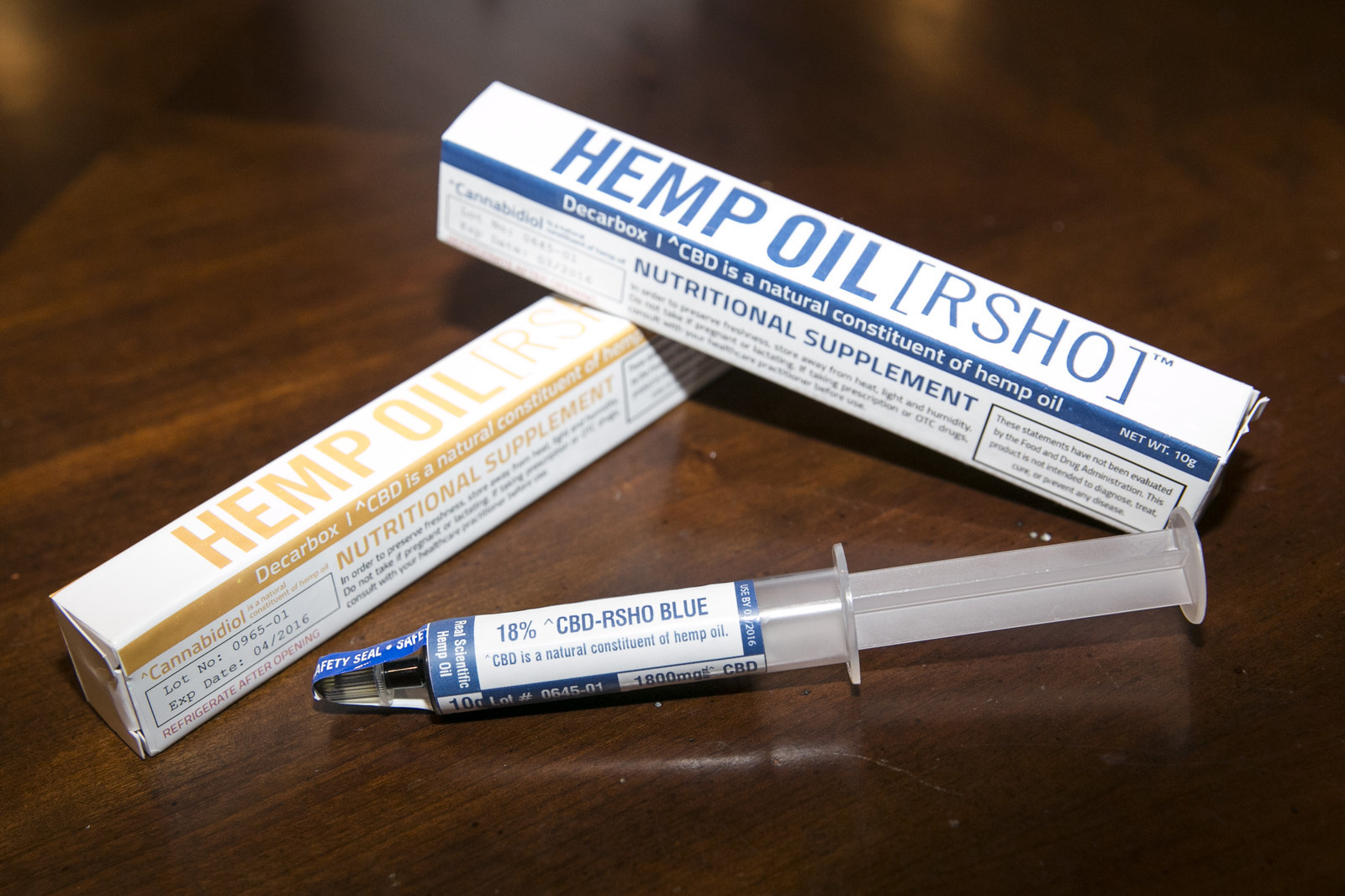
All those studies involve CBD found in marijuana; Medical Marijuana Inc. sells CBD products made out of industrial hemp. Although hemp grown abroad is legal to use in products that don’t get you high, not everyone believes the fibrous plant best known for rope and bohemian jewelry can provide the same medicinal benefits as weed. In recent years, some marijuana activists and financial analysts have accused Medical Marijuana Inc. and other publicly traded hemp CBD companies of selling snake oil to the sick and hype to naive investors. And yet some parents have said that CBD products made from industrial hemp have done immeasurable good for their kids’ seizures, and some patients with other illnesses have said they get relief from taking things like Real Scientific Hemp Oil. The problem is there’s no way for someone like Annette Maughan to know whether CBD itself can’t help her son, or whether there was hardly any CBD in a product to begin with.
The medical potential of CBD wasn’t widely known until CNN aired Sanjay Gupta’s August 2013 documentary Weed. The documentary featured a little girl in Colorado whose debilitating 300 weekly seizures stopped almost entirely after she began taking a tincture made from a marijuana strain high in CBD and low in THC. It was an incredible thing for people to see: a patient convulsing, and then, after consuming some marijuana, suddenly not.
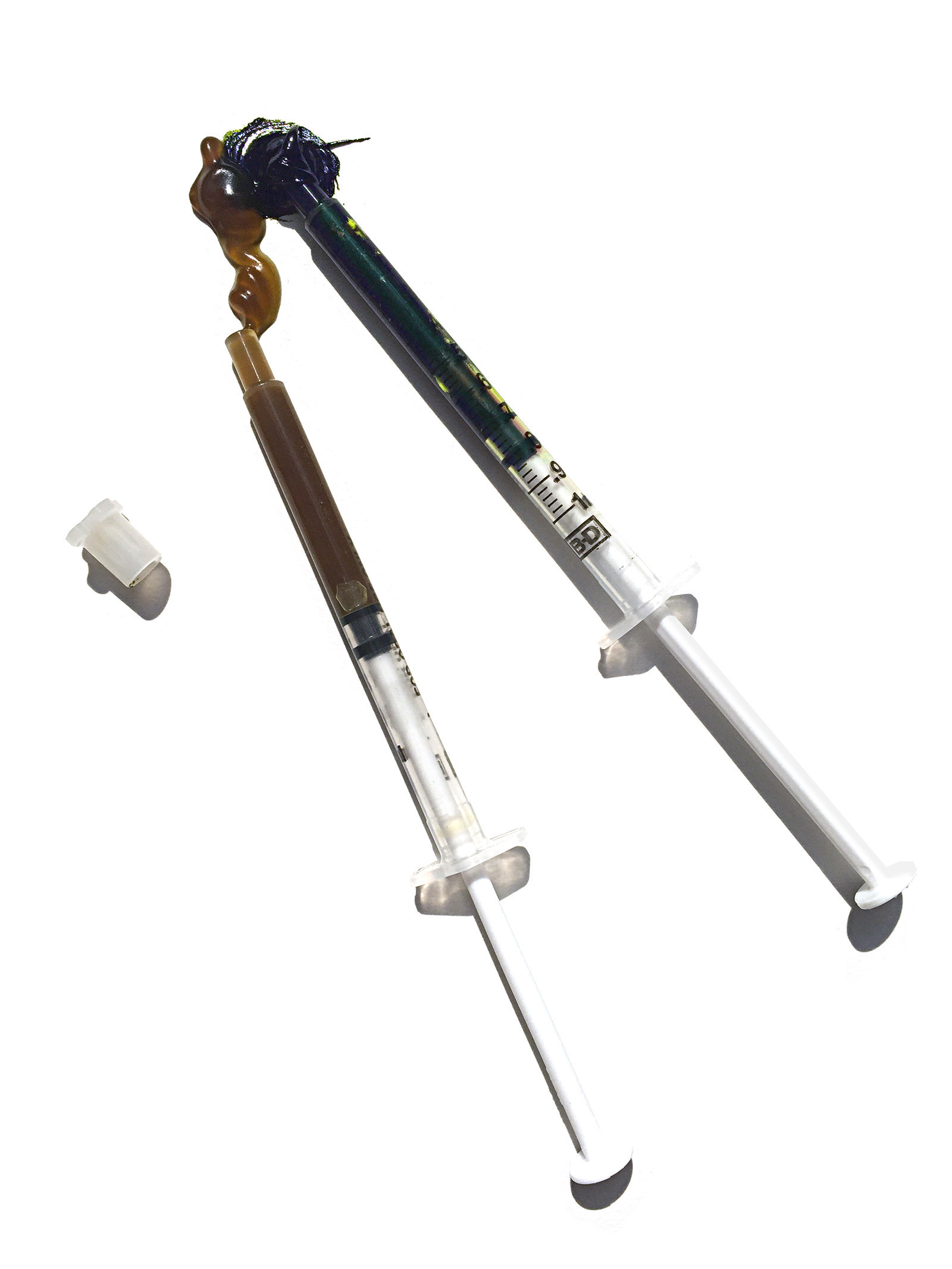
In a country that has long been skeptical of the concept of medical marijuana, CBD seems like the holy grail: pot that doesn’t get you stoned and is purely therapeutic. In the past two years, parents of children with intractable seizures have become tenacious advocates for medical marijuana in conservative states that never would have considered legalizing the drug five years ago. The political appeal of sick children and a nonpsychoactive compound has led to new laws in 15 states, countless starry-eyed media stories, and vocal support from the most unlikely of places. After Senator Rand Paul expressed his support for children with seizures using medical marijuana at the most recent Republican presidential debate, even Governor Chris Christie — who has vowed to eliminate the recreational marijuana market in Colorado if elected — said he agreed.
BuzzFeed News spoke with over a dozen parents of children with intractable seizures from states all across the country. They’ve quit their jobs, spent months waiting for doctor’s appointments, moved across the country for better treatment, signed documents affirming that they understood their child might die from taking a certain medication, had despondent, late-night conversations about giving up custody, and sat at a hospital bedside while their child was deliberately put into a coma, in the hopes that it might end a state of constant seizures, called status epilepticus.
After seeing the CNN documentary, many of these parents began wondering if cannabis could help their kids. Within days of its airing, thousands of parents of children with seizures and adults who suffer from muscle spasms or epilepsy were scouring the internet, looking for more information and places to buy CBD. They were met by ads for Real Scientific Hemp Oil and other Medical Marijuana Inc. products. Further clicks revealed the oil featured in Gupta’s documentary, made from a marijuana strain called Charlotte’s Web, could only be obtained by residents of Colorado, and that the waiting list was well on its way to what would eventually become over 8,000 patients. On the other hand, Real Scientific Hemp Oil, which Maughan got for Bug, could reach any mailbox in the country in four to six weeks.
Using industrial hemp grown abroad instead of pot to make their CBD products allows companies like Medical Marijuana Inc. to exist at the intersection of a few legal loopholes. While marijuana companies cannot legally move their products across state lines, keep their money in a bank account, or sell stock, hemp companies can. Shares of Medical Marijuana Inc., as well as a few other hemp CBD companies, are traded on the penny stock market, a high-risk place where companies are not vetted by regulators as thoroughly as they would be on a bigger market like the Nasdaq or the New York Stock Exchange.
But just like marijuana products, hemp CBD products are not subject to Food and Drug Administration approval or testing, so parents are left to figure out on their own which products are worthless and which could change their child’s life. And the only firms shipping what they need to all 50 states are unregulated companies like Medical Marijuana Inc.
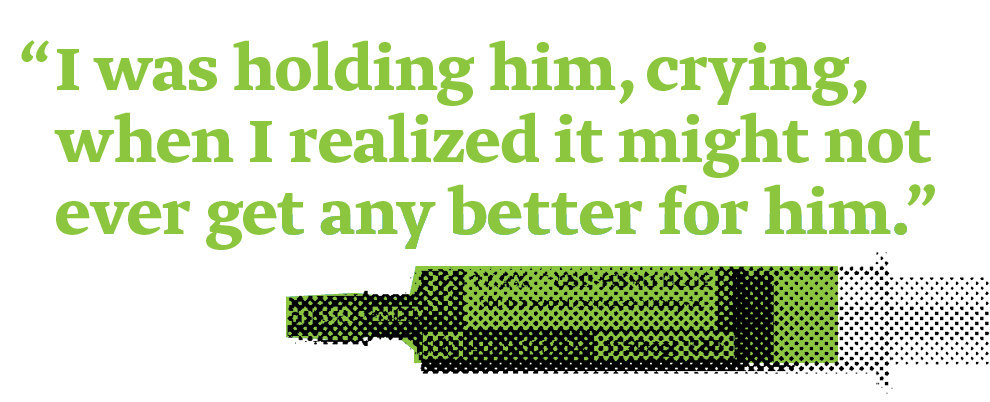
Medical Marijuana Inc. was started seven years ago by Bruce Perlowin, who spent the '70s and early '80s smuggling millions of dollars of marijuana from Colombia to San Francisco. After prison, he turned legit, landing his first marketing gig by generating some publicity for writing “Ex-Marijuana Kingpin Needs Job” at the top of his résumé.
Then, in 2008, CNBC asked him to talk about his druglord days for a documentary. Perlowin realized attitudes toward pot were changing and that his expertise could help launch a new phase of his career, so he looked for a way to make money off of what speculators were already calling the Green Rush.
However, he didn’t want to work with the plant itself, and not just so he could avoid going back to prison. People who grow, sell, or process weed in states that have legalized some form of marijuana can’t keep their cash in bank accounts, because the agency that insures even local community banks is under the jurisdiction of federal law, which still bars marijuana use. So instead of buying a dispensary or planting some pot, Perlowin changed the name of an existing publicly traded company he was involved in to Medical Marijuana Inc.
At first, in order to drum up interest on the stock market, the company claimed to be interested in every possible pot-adjacent business: educational seminars, consulting, point-of-sale systems for dispensaries, compliance advising, accounting services, electronic security systems. It even proposed starting a marijuana-themed business journal.
Except for a few seminars, none of these plans actually panned out. Some observers began to suspect that the company was making exaggerated claims about its potential profitability.
“As an investment banker, I wouldn’t get past the filings or just the network of companies they’re associated with — none of it — because none of it passes the sniff test, from day one,” said Adam Selkin, director of corporate client services at Chardan Capital Markets, a boutique investment bank that is now doing research on the marijuana space.
Then, in the middle of 2010, Medical Marijuana Inc. began exploring the possibility of selling hemp products. For the average person, the main difference between hemp and marijuana is that one gets you high and one doesn’t. But the two cannabis plants are not different species: A recent study from biologists and botanists in Canada found the degree of difference between hemp DNA and marijuana DNA is “similar to the degree of genetic differentiation in humans between Europeans and East Asians.”
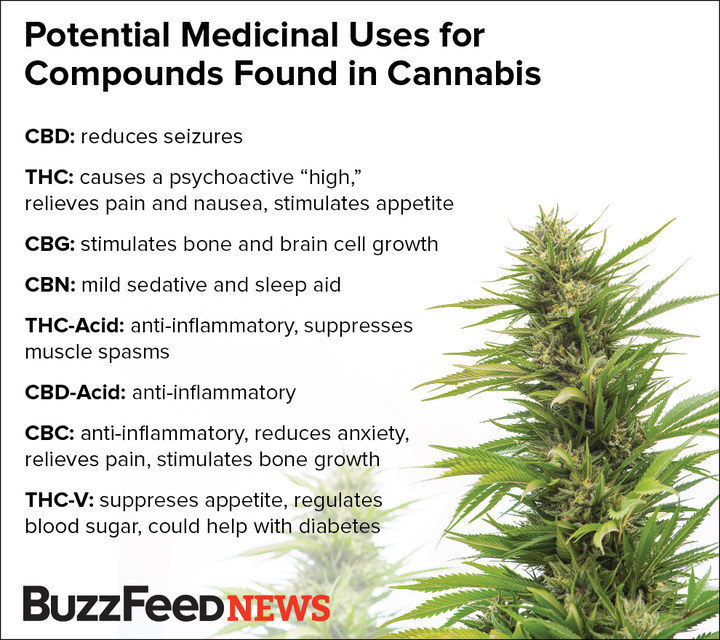
This means that hemp, too, contains cannabinoids like CBD and THC — albeit in much smaller amounts than in marijuana.
Federal case law allows for “naturally occurring” THC in “nonpsychoactive” hemp products, such as protein-rich oils made from cold-pressed hemp seeds. Exactly how much THC is allowed varies by state, but most laws say it must be less than 1% or 0.3%, a percentage too low to be psychoactive. Nothing in federal law specifically addresses CBD, or any cannabinoid other than THC.
Since CBD is “nonpsychoactive,” Perlowin and the Medical Marijuana Inc. lawyers decided they could reasonably argue that there was no legal limit to the percentage of CBD you could have in a product if it originally came from hemp. This turned out to be a somewhat brilliant gamble. The company was perfectly poised to take advantage of a vague legal situation on a side of the drug trade where the dealers wear suits and the users are sick people. Lots of people were eager to get in early on the cannabis industry without leaving the comfort of their couch. It was all too easy to sell shares into what Perlowin likes to call “the first ever publicly traded marijuana company.”
Perlowin left in 2011, selling most of his remaining shares for around $5 million, and he and his associates now run another hemp CBD corporation called Hemp Inc. — one offshoot of which, Cannabis Sativa Inc., is run by former New Mexico governor and 2012 Libertarian presidential candidate Gary Johnson. Another offshoot of Medical Marijuana Inc. is run by Dean Petkanas, former VP of corporate finance at Stratton Oakmont, the investment firm that inspired The Wolf of Wall Street and is famous for corporate malfeasance.
Many of the people who work with and advocate for actual medical marijuana have questioned Medical Marijuana Inc’s grand ambitions for industrial hemp, because they don’t believe hemp seeds and stalks could include any useful CBD.
Medical Marijuana Inc. itself admits extracting a viable amount of CBD out of hemp is difficult. “We refine entire fields to make something like Real Scientific Hemp Oil,” the company’s public relations representative, Andrew Hard, told BuzzFeed News. “Each individual plant isn’t high in CBD, but together they are. In the end, you get a product that’s potent.”
Hemp CBD companies like Medical Marijuana Inc. sell their products as nutritional supplements, which means the only real rule they need to follow is they can’t make claims about the product’s ability to cure specific diseases. Real Scientific Hemp Oil and other Medical Marijuana Inc. products come onto the marketplace without FDA approval or testing.
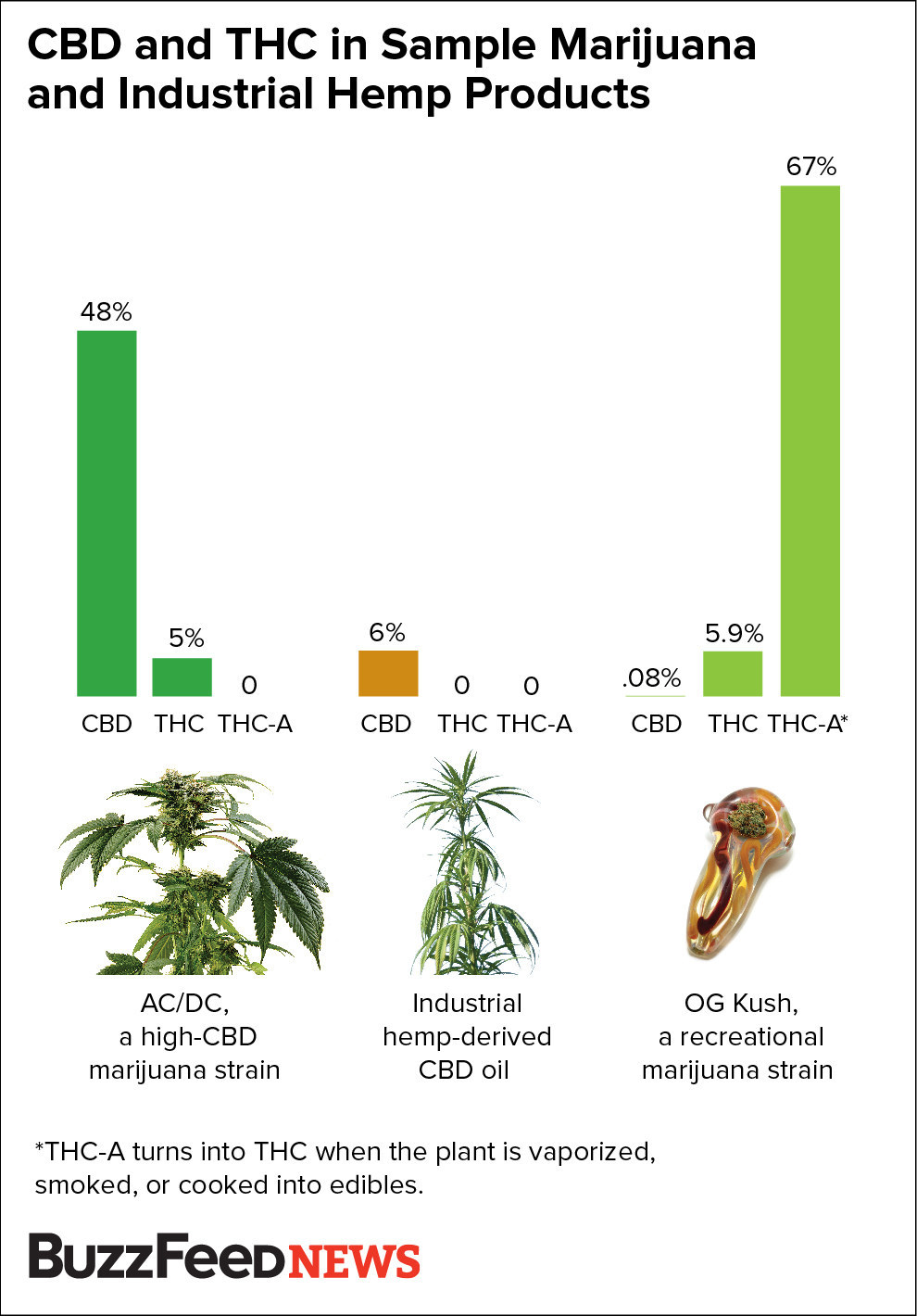
“There’s no oversight. There’s no mechanism that gives the consumer some assurance that what they think they’re getting is what they’re getting,” said Amanda Reiman, the manager of marijuana law and policy at the Drug Policy Alliance. “If someone sells you 30% THC cannabis, and you don’t feel high, you have an idea it’s not quite what was advertised. Because CBD is nonpsychoactive, if someone gives you a tincture that’s says 25% and it’s actually 3%, you’re not going to be able to tell that just from ingesting it.”
It also means that no one is testing hemp CBD products for whether its traces of THC exceed the legal limit. A truck driver is suing Medical Marijuana Inc. over a product he used to alleviate hip and shoulder pain. The product was advertised as containing 0% THC, but the driver claims it was the reason he failed a drug test, lost his job, and has been unable to find a new one.

In the weeks and months after the Gupta documentary aired, parents turned to Facebook to compare notes on which CBD products were worth trying and how to access them, and Real Scientific Hemp Oil was often the target of heated debates. Some people complained it had given their children diarrhea, or caused them to vomit. Others thought it simply looked dirty, or felt it was not credible because it came from overseas.
Many parents felt it was difficult to trust anyone who said positive things about Real Scientific Hemp Oil, because no one could tell who on Facebook was a like-minded parent and who was a salesperson that had bought the product wholesale and was reselling it.
Some of the parents who did speak directly with salespeople became even more suspicious of the company. Meghan Gatens Wilson told BuzzFeed News about an early interaction with a reseller that permanently turned her off of Medical Marijuana Inc. products. “Just looking at [Real Scientific Hemp Oil], you can tell it’s an undesirable product: the color and the thickness and all that,” Wilson said. “So I basically told the guy, 'I don’t believe in industrial hemp oil,' and he said, 'So you’d rather let your child die?'”
Eventually, the biggest Facebook group for this community of desperate parents, Pediatric Cannabis Therapy, banned conversations about hemp CBD oil entirely. There was no way to know how many people had tried hemp CBD products and how each had fared. But public opinion was starting to turn against hemp CBD companies like Medical Marijuana Inc.
“The history of Medical Marijuana Inc. is rife with promises that have never come even close to being fulfilled,” said Alan Brochstein, who worked in finance for a few decades before starting the 420 Investor news service in early 2013.
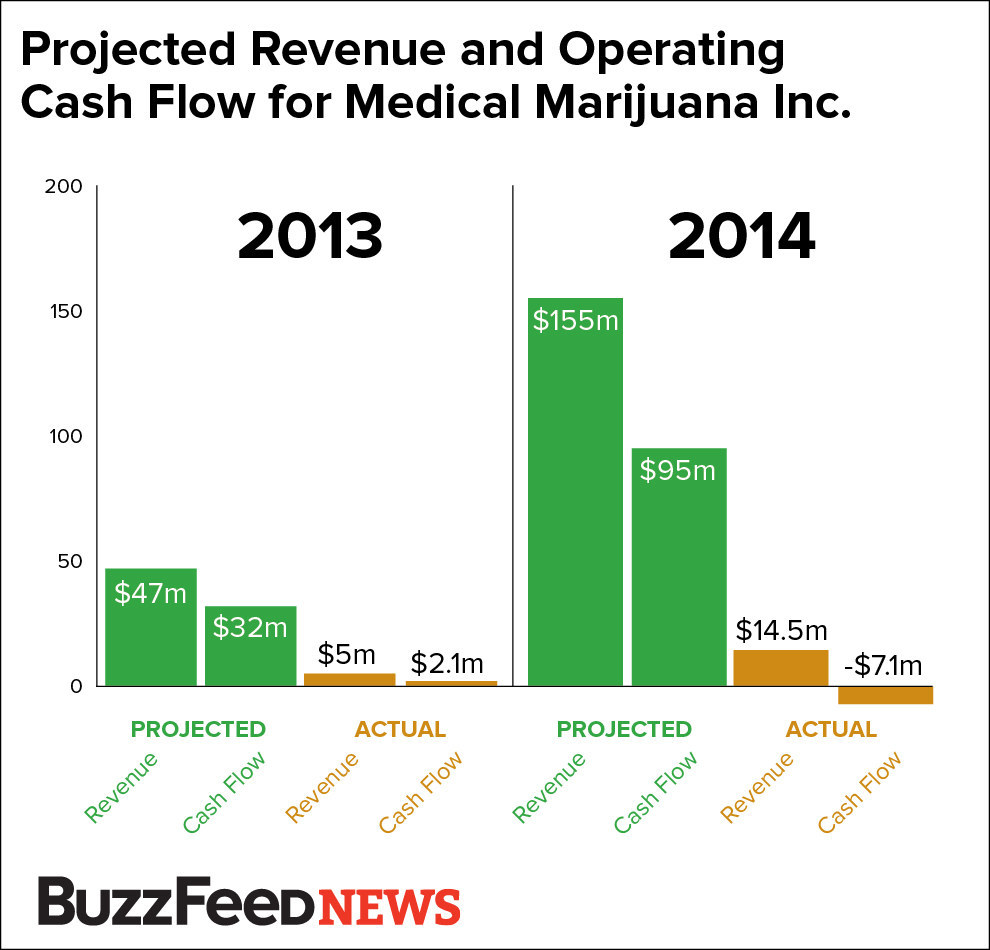
“Publicly traded companies miss projections all the time,” said Hard, the representative from Medical Marijuana Inc. ”The company has a new CEO and board of directors since March 2015, all of whom are working to put the company in a position to uplist into a larger more significant [stock] exchange.”
Financial analysts weren’t the only ones criticizing the company. In the summer of 2014, a few weeks after Bug suffered more seizures while taking Real Scientific Hemp Oil, the Hemp Industries Association issued a statement calling the contents of Medical Marijuana Inc.’s products into question.
“CBD is not a product or component of hemp seeds,” the Hemp Industries Association statement said, “and labeling to that effect is misleading and motivated by the desire to take advantage of the legal grey area under federal law.”
Legal hemp products are only supposed to make use of the plant’s seeds and stalks, because the leaves, buds, and flowers have a higher concentration of THC. At the time, most of Medical Marijuana Inc.’s products were being supplied by a wholesale subsidiary called CannaVest. Stuart Tomc, a spokesman for CannaVest, admitted to BuzzFeed News that the company doesn’t actually restrict itself to hemp seeds and stalks. Instead, he said, they use “aerial plant parts … [meaning] every part of the hemp plant above the soil,” — including the illegal leaves, buds, and flowers.
Medical Marijuana Inc. maintains that its CBD comes only from mature hemp stalks, as the law allows, and denies using other parts of the plant. The company also provided certified letters showing CannaVest oil is only made from seeds and stalks.
Then, in October 2014, a prominent CBD advocate named Martin Lee, who consults for competing CBD companies, published a 30-page report called Hemp Oil Hustlers that painted Real Scientific Hemp Oil as dangerous and Medical Marijuana Inc. as committing stock fraud.
“Either they are poor product makers, or they are purposefully scamming people,” Lee told BuzzFeed News.
The report described the company in the lurid language of a tabloid exposé, claiming that “more than a dozen families” said that Real Scientific Hemp Oil had made them or their children “violently ill.” One parent whose child got sick had her tube of Real Scientific Hemp Oil tested at an independent lab that initially said the sample contained unsafe amounts of heavy metals. A few days later, after photographs of the results had been widely shared on Facebook, the lab manager called back and said there had been a mistake. In the new version of the results, the numbers for silver, selenium, nickel, lead, and molybdenum had been changed, though the rest of the numbers remained the same.
Many parents of children with seizures and people in the marijuana industry interpreted this to mean that Medical Marijuana Inc. had somehow paid off the lab to change the results, even though the Hemp Oil Hustlers report did not manage to include comment or perspective from anyone at the lab or at Medical Marijuana Inc.
By the beginning of 2015, complaints about hemp CBD products were on the radar of government agencies and major activist organizations. The Drug Policy Alliance published a blog post warning consumers in nonmedical states to be wary of hemp CBD products, and in February the FDA issued warning letters to six hemp CBD websites that were making outrageous claims about the diseases that CBD could cure.
The FDA also released testing data showing that several hemp-derived CBD products contained far less CBD than was listed on the label. When it tested a container of Cibaderm Hemp Salve from hempoilcare.com that said “made with cannabidiol” on the label, they found no CBD whatsoever. Cibaderm products were previously sold by Medical Marijuana Inc. and are now sold by CannaVest, but the FDA’s warning letter to Tigran Lalayan, the proprietor of hempoilcare.com, also noted that he was selling a Medical Marijuana Inc. product called Dixie Botanicals Dew Drops Hemp Oil Supplement.
Hard, the representative from Medical Marijuana Inc., said the product tested by the FDA must have come from one of the people who buy in bulk and resell on their own. “Probably what they’re doing is watering it down, and selling some kind of garbage,” Hard said. “They made a no-no.”
Medical Marijuana Inc. is hardly the only publicly traded cannabis company whose claims have come under scrutiny. Cam Funkhouser, the executive vice president of fraud detection and market intelligence at the Financial Industry Regulatory Authority (FINRA), said he began to notice a trend of marijuana-related stock fraud in 2013.
Those fraudulent companies “are not particularly interested in marijuana,” Funkhouser said. "They’re particularly interested in defining investments that will attract attention based on current events. Let’s say a major hurricane hit today. We might see a spate of companies that are suddenly [claiming to be] in the hurricane cleanup business.”
Just two weeks after the Weed documentary aired in August 2013, FINRA issued an investor alert on publicly traded pot companies, warning that “con artists behind marijuana stock scams may try to entice investors with optimistic and potentially false and misleading information." Although FINRA is not able to comment on any companies specifically, Newsweek finance reporter Leah McGrath Goodman later wrote that this warning had been specifically prompted by Medical Marijuana Inc. (Hard denies that Medical Marijuana Inc. was the cause of this warning.)
Few heeded the warning, even after the Securities and Exchange Commission briefly suspended trading of five marijuana-related companies last spring. According to data analyzed by financial website Openfolio, investors lost $23.3 billion on pot stocks in 2014.
Brochstein has been particularly critical of Medical Marijuana Inc. since shifting his focus to marijuana stocks over two years ago.
“One year they somehow managed to get a positive operating cash flow because they didn’t pay their bills,” he told BuzzFeed News.
Hard, the Medical Marijuana Inc. representative, dismissed Brochstein’s criticisms. “Alan Brochstein again comes off as a blowhard," he said, "citing no actual regulations and clearly trying to build himself up while trying to tear down a company that’s done good for the world."
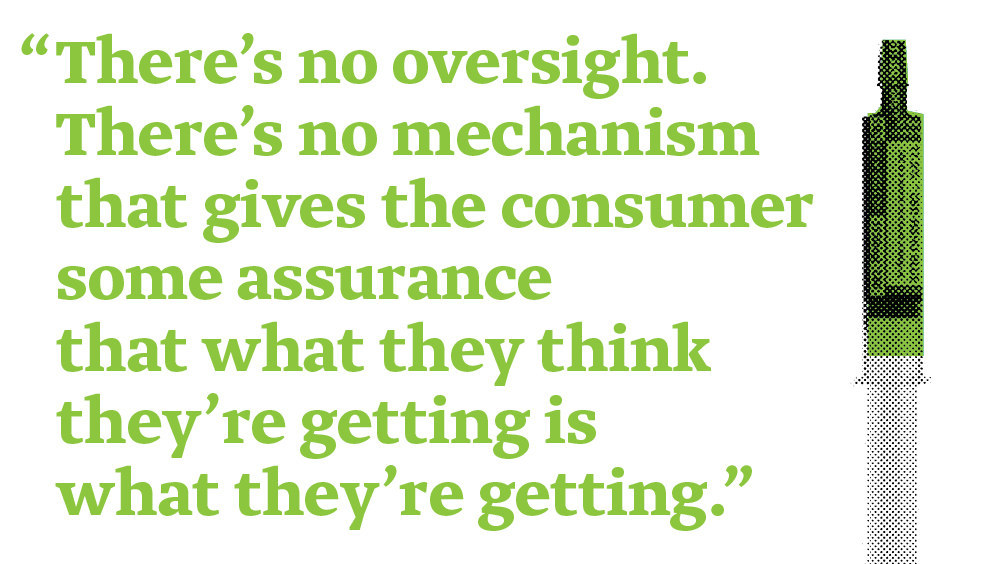
Medical Marijuana Inc. may have been founded with the intention of finding a pot-adjacent business that would create a lot of excitement in the stock market. But then a strange thing started to happen. Hemp CBD was actually helping some people.
Penny Pennington Howard lives outside of Dallas and has given her 5-year-old daughter, Harper, several doses of Real Scientific Hemp Oil every day for the past two years. Harper suffers from a rare genetic disorder called CDKL5, and used to have up to 60 seizures a week. Now she has none.
Howard isn't concerned about the financial strategy behind the company that makes Real Scientific Hemp Oil, or what exactly might be in the product. All that really matters is that she can finally maintain eye contact with her daughter. “I really don’t care if it’s dirt,” she told BuzzFeed News. “If it’s working, fantastic. Bottle it and market it.”
When BuzzFeed News told Dr. Richard Rivera, Harper Howard’s pediatrician, about Lee’s allegations that Real Scientific Hemp Oil was dangerous, and might contain heavy metals or other toxic compounds, he was surprised, and offered to run labs checking for all of these things. According to Rivera, her blood showed no sign of heavy metals, or of anything else abnormal.
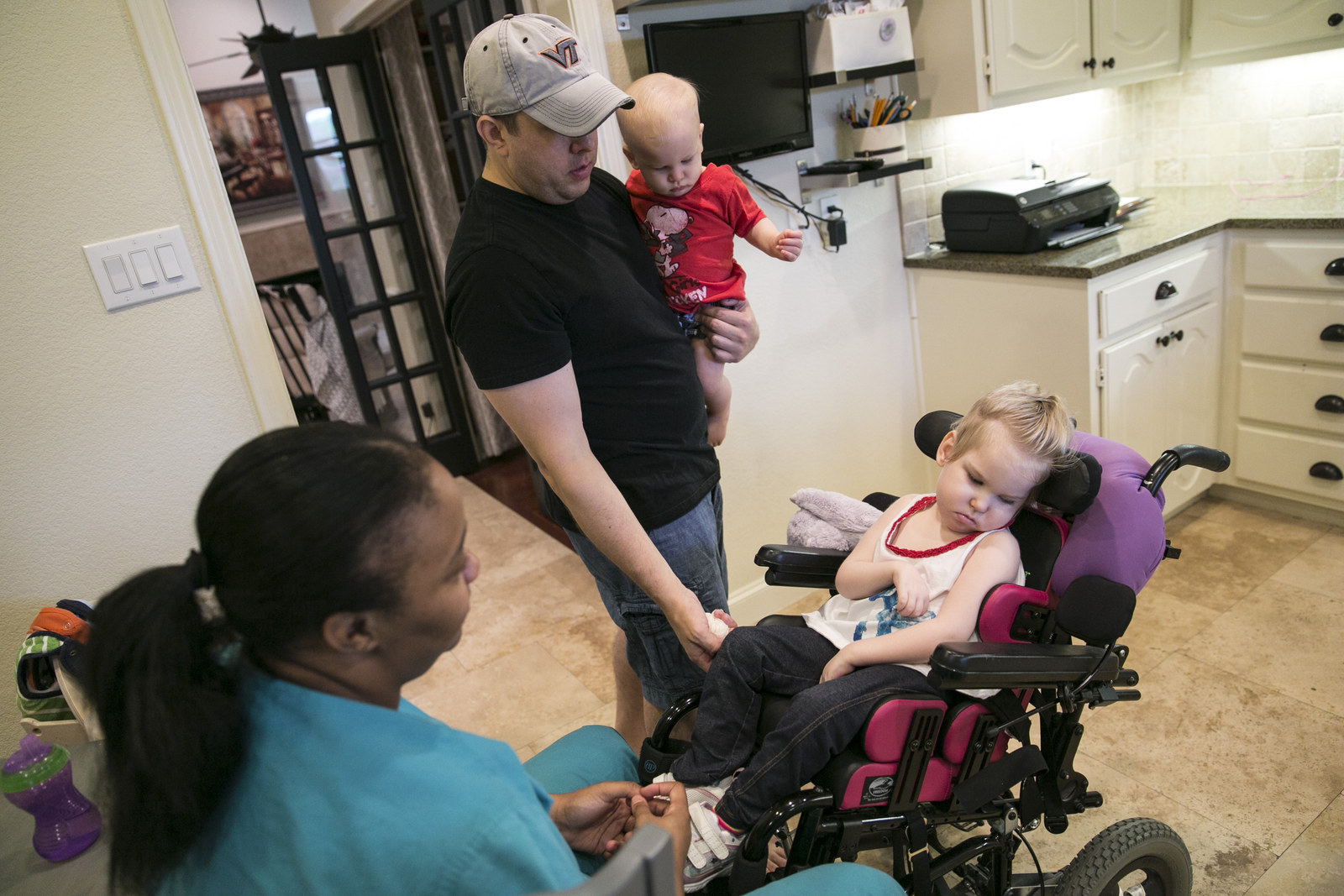
The idea that industrial hemp is somehow inherently dirty or toxic, while marijuana is clean and safe, was one of the more lasting impressions that Martin Lee’s Hemp Oil Hustlers report left on many parents and patients. In response, this January Medical Marijuana Inc. filed a $100 million libel lawsuit against Lee and his self-described “non-profit educational service,” Project CBD, over Hemp Oil Hustlers.
Though Lee tried to get the suit dismissed on the grounds that the report was journalism in the public interest, a judge determined at the end of May that the case should continue on, partly because of Lee’s ties to “a company that produces and sales [sic] what appears to be a competing product.”
Specifically, a company called Care by Design.
Care by Design sells marijuana-derived CBD products out of over a hundred dispensaries in California. Renee Petro, who lives in Florida and also has a child who suffers from seizures, told BuzzFeed News that she has seen Care by Design products beside Project CBD information pamphlets at conventions and other events, and that Martin Lee had talked to her about the product.
“Martin Lee doesn’t care about my son,” Petro said. “Greed is the only true motivator, especially in this industry.”
Lee told BuzzFeed News that Care by Design is one of many cannabis businesses that Project CBD consults for, a sideline that he said nets him about $1,500–2,000 a month. However, public records obtained by BuzzFeed News show that the business address registered to Care by Design is at the same rural intersection as the business address registered to Project CBD Consulting. And when BuzzFeed News called Care by Design, the son of Lee’s Project CBD co-founder, Fred Gardner, picked up the phone.
Although Lee’s Hemp Oil Hustlers report had an outsized influence on how many people see hemp CBD, his connections to a specific brand of marijuana-based CBD have not been widely reported. His influence has led many parents to think it’s disgusting and unsafe that Penny Howard gives her daughter Real Scientific Hemp Oil every day.
“I’ve been questioned as a parent, but what would you do?” Howard said. “It’s easier for people to be so harsh when you’re behind a computer. It’s hard to be so judgmental when I’m standing next to Harper, who’s doing so well on this product.”
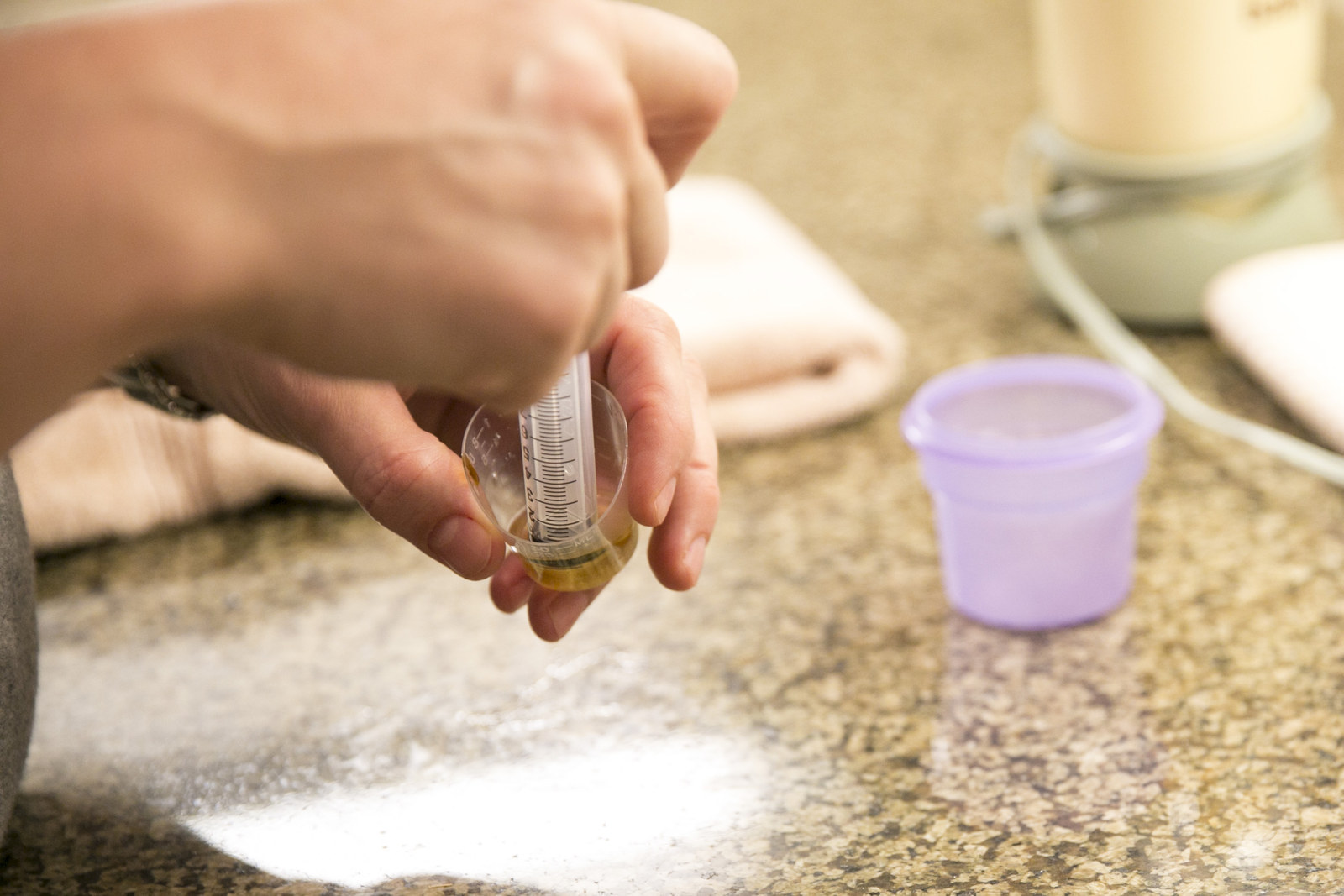
In fall 2013, Howard’s blog about her daughter’s health drew the attention of two Brazilian families whose children also have CDKL5. After trying Real Scientific Hemp Oil, both families saw dramatic seizure reductions in their children. The parents brought their story to the Brazilian media, and within a year, the government had set up a system to allow the importation of CBD.
Hemp CBD products are starting to gain more respect in the United States as well. A handful of companies that sell CBD products out of California’s marijuana dispensaries told BuzzFeed News that they actually use imported hemp, not CBD-heavy strains of marijuana, to make their products.
Hemp is actually easier and cheaper to come by, because the majority of commercial marijuana plants don’t contain much CBD. Most pot today comes from plants selectively bred over the past 40 years to create a powerful high, which means THC content has gone from an average of 3–5% in the early 1970s to 15–20% in 2015. At the same time, growers were unwittingly breeding CBD out of their plants, because in addition to not being psychoactive, CBD inhibits the high caused by THC. (Certain stoners sometimes carry CBD gum or oil in case they eat an edible that is too strong and want to come down a bit from the high.)
Hemp CBD is even starting to pop up in health food stores and gain appeal in Silicon Valley. The accelerator 500 Startups is currently funding a company that sounds very similar to Medical Marijuana Inc., only without the shareholders and subsidiaries. The startup is called Nancy, after suburban pot dealer Nancy Botwin from the TV show Weeds, and founder Samantha Strom said she plans to start selling hemp CBD vape pens, edibles, and tinctures — which won’t get you high but will be marketed as general wellness products — by the end of this year.
“There are a lot of different brands doing hemp CBD,” Strom told BuzzFeed News. “But there’s not one that has a very strong brand and is kind of trusted among consumers.” Eventually, Strom said, she’d like to expand Nancy into marijuana-derived CBD as well, but for now, hemp is simply more practical when it comes to reaching a national market.

Most new drugs reach mainstream patients after years of government or pharmaceutical-company–sponsored research and development, followed by a period of additional testing and placebo-controlled trials for approval by the FDA.
CBD, on the other hand, has largely slipped into our nation’s medicine cabinets by hook or by crook, packaged and shipped by firms that exist in legal limbo, and judged for safety by rumors bouncing around the carnival house of distorted mirrors that is Facebook. This is what happens when a potentially groundbreaking set of medical compounds are discovered in a mostly illegal narcotic designated by the federal government as having no medical value whatsoever.
That’s what the DEA’s Schedule I classification of cannabis means: that pot has zero medical potential and is among the most dangerous drugs, along with heroin and LSD. Though a Harris poll from May said that 81% of the country now wants to legalize medical marijuana, that shift in public opinion is not yet reflected among federal agencies.
In spite of the legal hoops that Medical Marijuana Inc. takes care to jump through, Barbara Carreno, a public affairs officer for the DEA, told BuzzFeed News it considers all CBD to be illegal — even when it comes from hemp. And just this spring, the FDA announced that CBD may no longer be sold as an herbal supplement. But until a court or new law determines exactly whether CBD is or isn’t legal on a federal level, the positions of these agencies remain unenforced.
This means that hemp CBD products like Real Scientific Hemp Oil sit in a gray area between the legal, regulated market and the black market targeted by law enforcement. The company that produced the CBD product featured in CNN’s documentary has begun referring to its nonpsychoactive CBD-heavy marijuana strain Charlotte's Web as "hemp" in order to be able to grow more of it and ship it to consumers in 48 states, even though it’s not entirely clear that doing so is legal under federal law.
Parent activists at the state level, including Bug’s mom, Annette Maughan, in Utah, are trying to change that. Many have successfully run campaigns similar to the one in Brazil, meant to legalize strains of pot that are high in CBD and low in THC without allowing medical marijuana in general. At last count, 15 states have passed so called “CBD-only” laws, in addition to the 23 that have legalized medical marijuana.
And yet many activist organizations and parents acknowledge that these laws are only a small step in the right direction. Politically, it’s much easier to support legalization of a substance that doesn’t get you intoxicated, but what little research that’s out there shows that THC, the compound in pot that gets you high, has the potential to help a far greater number of diseases. Even the parents who helped push for CBD-only laws told BuzzFeed News they are frustrated by the public’s obsession with the dream of a magical form of medical marijuana that has no psychoactive effect.
Many have found that THC is better at quelling their child’s seizures than CBD, or that some combination of the two is necessary.
“It’s next to impossible to help people with cannabis without some degree of psychoactivity,” said Eamon Ryland, who has spent the past decade breeding and developing CBD-heavy strains in Southern California, most recently for a CBD-oriented collective known as StateWide Dosed Medicines. “But there’s a difference between psychoactivity and inebriation. With Vicodin, you expect psychoactivity.”
Even those who want isolated CBD and are living in a state with a CBD-only law have very limited access to the compound. They can’t grow CBD-heavy strains themselves, and in most states they can’t buy marijuana-derived CBD products anywhere. To bring CBD products back from a place like California or Colorado would be a felony. The only way to legally get CBD is if a local hospital gets permission from the FDA and the DEA to enter into a limited clinical trial of a 98% CBD drug called Epidiolex, which is made by the U.K.-based GW Pharmaceuticals.
About a dozen hospitals have gained permission to enroll patients in the trials, but in some states the approval process has been dragging on for multiple years. Fewer than 800 patients nationwide are on Epidiolex.
Steve Schultz, vice president of investor relations at GW Pharmaceuticals, told BuzzFeed News it expects the trials to be completed early next year, and plans on submitting their new drug application to the FDA in the middle of 2016. However, the drug could not be distributed on a wider scale unless the DEA removes marijuana from Schedule I.
For now, the political will to change federal laws to make CBD more available is minimal at best. Activists are not optimistic about barriers to research or access being lifted anytime soon.
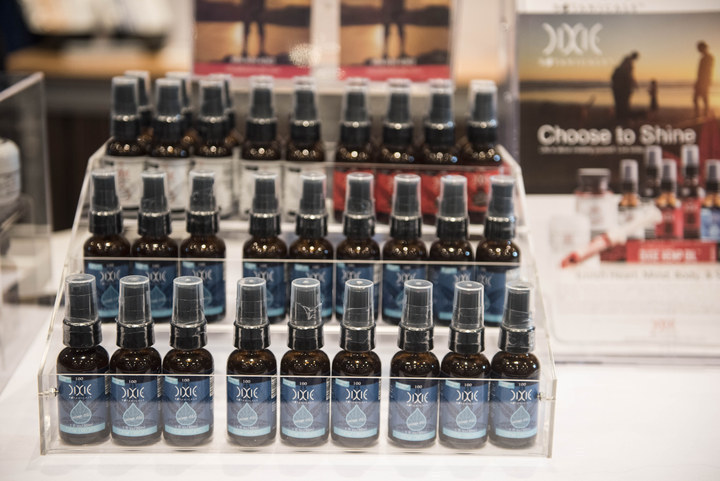
The day after Annette Maughan took her son Bug off of Real Scientific Hemp Oil, he had only seven seizures. The following day, he had four. She was both relieved and discouraged, but she decided not to give up on cannabis quite yet.
Maughan and her friend Jennifer Hardy May, the woman who had initially introduced her to the idea of cannabis as a potential treatment for seizures, had spent eight months fighting to legalize CBD in Utah. May and Maughan both felt that focusing on CBD-heavy, THC-light marijuana was the only way to get a bill passed. Since the pot products they wanted access to would be less than 1% THC, they realized they could just call the stuff “hemp.”
Utah passed its CBD-specific law on March 25, 2014. Late last summer, Maughan found out that Bug was one of 25 patients who had been handpicked by Primary Children’s Hospital to participate in an Epidiolex trial. He began taking the drug in September 2014. In the next three months, his seizures went down by 70%, and Maughan saw some of the transformation she had been hoping for all along.
“He follows directions, and he wouldn’t do that before," she said. "I’ll say, 'Glenn, come over here and lay down, so we can change your diaper,' and he’ll do it. Whereas before we had to go and get him."
Bug has also started making vocal sounds beyond the involuntary scream that signals a seizure. They’ve been able to reduce the dose on some of his other medications, and after he does have a seizure, he recovers faster than he used to.
Other parent friends of May and Maughan soon found that higher doses of CBD sometimes caused vomiting and diarrhea.
“You can no longer say the diarrhea and the vomiting are happening because the medicine is dirty,” Maughan said. “For a movement that was supposed to be so love-based, the vindictiveness and the outright lies that I’m seeing now… It’s turning my stomach.”
The chaos of Maughan’s life was starting to settle down once the Epidiolex trial began, but then, in December, Bug fell while he was having a seizure and broke his jaw — a major setback. Injuries bring on more seizures, Maughan said, and while he was recovering this past winter, Bug had nearly 10 seizures a day.
“I think the media is pushing CBD as this miracle cure for epilepsy, but it’s not,” May told BuzzFeed News. "It’s just wrapped up in this nice little package that’s not the real story."
Although his jaw has now fully healed, he still has good days and bad days. The Epidiolex has made him more alert, and has allowed him to go a few days at a time with no seizures whatsoever, but it certainly hasn’t fixed everything. Like many other parents, Maughan is just trying to figure out what works best for her child and his particular illness.
“We do have kids who are doing very well on certain products, and some who have gotten worse, and some who have no response, and everything in between,” May said. “The bottom line is you’re kind of on your own, with anything you could try. You’re in charge of figuring it out for yourself.”
Correction: An earlier version of this article stated that clinical trials for GW Pharmaceuticals' 98% CBD drug, Epidiolex, would be finished by the end of this year. The company has postponed that deadline to early next year.
